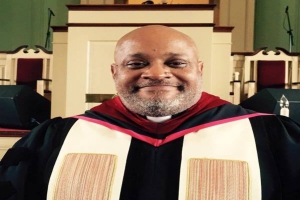
Starting a church in Nigeria
STARTING A CHURCH IN NIGERIA: HOW TO REGISTER A CHURCH IN NIGERIA – THINGS TO CONSIDER IN CHURCH BUSINESS
Starting a church or running a church business in Nigeria may be a fulfilling experience and challenging experience at the same time. Church is registerable as “Incorporated Trustees” under Part “C” of the Companies and Allied Matter Act, Cap C20 Laws of the Federation 2010 and considered a nonprofit organization under Nigerian laws.
The following is a guide on starting a church in Nigeria, things to consider when starting a church, and pastoring a church in accordance with the statutory obligations of relevant laws.
1. Devise a plan. Work with your founding members to write about your church’s doctrine, beliefs, mission, and purpose. As you define your mission and draft your purpose statement, you should describe the overall purpose of the organization; the activities the church will undertake; the core beliefs of the church; etc.
2. Select a church name that is simple, short and straightforward. For example, choosing a name like “Jesus Prophetic International Gospel Deliverance Worship Center of Ascension” is though, registerable, but too long and tiresome. Instead, you may choose a “one or two-word” name. For example, The Elevation Church, Gateway Church, The Love Church, New Horizon Church, New Season Church, Elevation Point Church, etc. (plus an alternate name in case the first name is unavailable for reservation).
3. Appoint the Trustee(s). The Trustee(s) is the shadow of the Church and at the heart of the Church governance and administration. A person qualified to be appointed a Trustee must not be less than 18 years of age; or of unsound mind; or undischarged bankrupt; or convicted of an offense involving fraud or dishonesty within 5 years of his proposed appointment.
4. Consult an Accredited Solicitor. A Solicitor who has been duly accredited by the Corporate Affairs Commission (CAC) to conduct pre and post incorporation matters with the Commission can help you execute the following:
-
Name Availability Search and Reservation. Your Solicitor will conduct a search at the Corporate Affairs Commission (CAC) registry to check if the church name you have chosen is available for reservation. Only a name that is not identical to an existing registered organization in Nigeria can be reserved for you. Where your name is available, same will be approved for registration. Name availability check and reservation can be effected within 48 hours by a CAC accredited Solicitor.
-
Publication of Notices. Your Solicitor, in compliance with the law, will publish in three (3) national dailies, one being a local newspaper widely circulated in the area where your church is based on a notification of intention to register the church, setting out the name of the church; the names of trustees, aims and objectives; and a call for objections within 28 days to the registration of the church (if any).
-
Drafting of the Church Constitution. The church constitution drafted by the Solicitor will set out rules that would govern the internal affairs of the church, the aims, and objectives of the church, the governance structure, names of members of the Board of Trustees, the statement of faith, etc.
-
Drafting of the Minutes of the Meeting showing Appointment of BoT Members. Your solicitor will draft the minute of meeting that will provide details whereat members of the Board of Trustees were appointed, the list of members present and absent, the voting pattern, and the authorization to apply for registration, signed by Chairman and Secretary of the Board.
-
Drafting of the Minutes of the Meeting for Adoption of Special Clause. Your solicitor will draft the minutes of meeting whereat the special clause was adopted into the constitution of the organization; signed by Chairman and Secretary of the Board.
-
Documentation of all incorporation documents. Your solicitor will put together all incorporation documents including duly completed application form in triplicate, letter of application, the original of newspaper publications, copies of the church constitution so drafted, the above minutes of the meetings, passport-sized photographs of the Trustees, the impression of the common seal of the Church, etc.
-
Submission and Filing. Your solicitor will file all the relevant documents with the Corporate Affairs Commission for the incorporation of the Church.
-
Collection of the Church Certificate of Incorporation. The Certificate of Incorporation of the Church will be issued by the Corporate Affairs Commission to you through your CAC Accredited Solicitor after due documentation and filings.
-
Register with the Tax Authorities. A Non-Governmental Organization including the Church is not a conventional profit-making entity by character. However, where a church engages in activities for profit, the profit derived therefrom is taxable as provided for in the Companies Income Tax Act. The church is expected to meet the following obligations under Nigerian tax laws: Register and obtain Taxpayer Identification Number (TIN); file tax returns on or before the due dates; pay applicable taxes on or before the due dates; keep accounting books and records of transactions; cooperate with any authorized tax officer on official business. You should request legal advice and assistance from a business lawyer for tax compliance.
-
Open a Bank Account in the Church Name. This is very important because operating a bank account in the church’s name signals that you are transparent. Some private persons and other organizations will not be comfortable writing a cheque for the church in your own name. But the church’s bank account shows it is official and you are open to receive donations. To open a church bank account, you will need the Church’s Certificate of Incorporation issued by CAC, Tax Identification Number, Board of Trustees’ Resolution authorizing the opening of the church bank account, and other documents the bank may require.
-
Issue Employment Contracts. Request the services of a Solicitor to prepare the employment contracts and work manual for your staff and ensure compliance with the Labour Act to avoid legal liabilities.
-
Perform Administrative Obligations. It is mandatory under the law that you file and submit annual returns to the Corporate Affairs Commission (CAC). Audited accounts and tax returns are to be filed with the Federal Inland Revenue Service (FIRS). You risk a penalty if you miss deadlines or submit incorrect information. There are a number of other statutory requirements. For example, there are obligations you must fulfill under the Companies and Allied Matters Act, Labour Act, Pension Reform Act etc. An accredited Solicitor can advise you and help you perfect these administrative tasks and obligations.
-
Comply with Town Planning Laws and the Building Code. Where you are set to erect a building to house your church, ensure strict compliance with the city master plan and ensure the construction work of the church building is in line with the Building Code. Do not situate your church in a residential area of the city. Do not mount loudspeakers on the exterior of the church building to cause noise pollution. Doing otherwise may cause disaffection amongst the residents of your neighborhood and may attract punitive measures from the town planning authority.
THE INCIDENCE AND BENEFITS OF CHURCH REGISTRATION
The following are the benefits and incidence of church registration.
1. The Church becomes a Corporate Body. As a corporate body, the church dealings and engagement with the public and the society will improve. The church can sue or be sued through its incorporated trustees to enforce its legal rights.
2. The Church becomes entitled to buy land, own fixed assets and incur liabilities under its common seal. It is illegal for an unregistered organization including an unregistered church to buy, hold or sell land anywhere in Nigeria.
READ: The important things to do before buying land or property in Nigeria – The land due diligence checklist
3. Perpetual Succession. This means the church would have an unlimited lifespan; and will continue to exist even if the founder, senior pastors or trustees die or leave the church. A Church’s existence will only cease if it is formally wound up by the Order of Court. Amongst other benefits, this allows your ministry to outlive you and even generations to come.
4. Having an Enhanced Corporate Image. The public will perceive your church as being stable than an unregistered church. Donor agencies, charity organizations, and NGOs will only partner with the church in community development efforts if the church is registered. The registration of your church can suggest that the church has an effective and responsible leadership in place.
5. The church can apply to the relevant government authority to be granted the Licence as a Place of Worship. This will enable the church to have the authority to solemnize marriages in accordance with the Marriage Act. Note that any marriage not celebrated in accordance with the provisions of the Marriage Act with a Marriage Certificate ascribed from the Marriage Registry is null and void and merely regarded as a “church blessing” or “church ceremony”. Such purported marriage has no legal effects, incidences or benefits attributed to Marriage under the Act.
6. Registering your church can afford you access to credit from official lenders and financial institutions. You can use a loan facility to finance a mortgage, purchase land or fixed assets, promote the church brand image, or fund the church operations for growth and expansion. Banks will want to see proof that your church is registered with the CAC as a condition precedent to giving a loan.
7. Once your church is registered, the name is protected. Nobody can use the same name or even a name that is similar to that of your church throughout Nigeria. This has the benefit of legally protecting your image and church name from unauthorized use.
8. Ability to open and operate a bank account in the church name. Operating a church bank account is an important asset to your church because it enables you separate personal transactions from church transactions. This is one of the clearest signs that you are transparent. Some private persons, churches and other organizations will not be comfortable writing you a cheque for the church in your own name. But the church bank account shows everyone that your church is official and you are ready to begin to take donations. You need to provide proof that your church is registered with the Corporate Affairs Commission to open an account with a bank.
NEXT STEP?
If you are looking to starting a church in Nigeria, you are taking the right step in the right direction. Incorporating a church would effectively confer numerous benefits for growth and expansion. It is recommended that you obtain guidance from an accredited solicitor to help you with the pre and post incorporation matters of your church as given above and to pin down key issues related to the governance structure and internal affairs of your Church.
Starting a church in Nigeria
